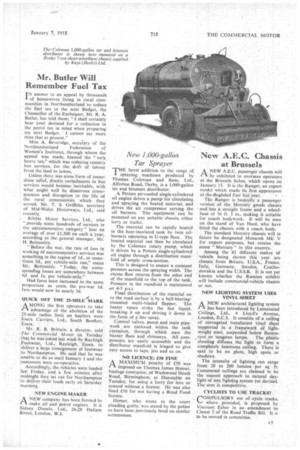Mr. Butler Will Remember Fuel Tax
Page 45

If you've noticed an error in this article please click here to report it so we can fix it.
1N answer to an appeal by thousands of housewives living in rural com munities in Northumberland to reduce the fuel tax in the next Budget, the Chancellor of the Exchequer, Mr. R. A. Butler, has told them: "1 shall certainly bear your demand for a reduction in the petrol tax in mind when preparing my next Budget. I cannot say more than that at present."
Miss A. Beveridge, secretary of the Northumberland Federation of Women's Institutes, through whom the appeal was made, blamed the "very heavy tax," which was reducing country bus services, for the drift of labour from the land to towns.
Unless there was some form of immediate relief, drastic curtailments in bus services would become inevitable, with what might well be disastrous consequences and disruption to the life of the rural communities which they served. Mr. T. S. Griffiths, secretary of M id-Wales Motorways, Ltd., said recently.
Ribble Motor Services, Ltd., who " provide some hundreds of services in the unremunerative category" lose an average of over £1,300 on each a year, according to the generalmanager, Mr.
H. Bottomley. .
Before the war, the rate of loss in working of unremunerative services was something in the region of Id., or sometimes 2d., per vehicle-mile run," states Mr. Bottom*. "Today, the corresponding losses are somewhere between bd. and Is. per vehicle-mile."
Had fares been increased in the same proportion as costs, the pre-war 1d. fare would now be nearly 3d.
















































































































